I have seen 10,9,7,6. Oldboy is my favorite of these listed. Also JSA, Silmido, and Memories of Murder are awesome films.
Remember the first time you saw My Sassy Girl? Jun Ji-hyun was love at first sight, or for the ladies, Cha Tae-hyun was the studly oppa of 2001. You knew you had to marry them. But they found each other and left you crying to Sad Movie, which hurt even more because Cha Tae-hyun cheated on you again. After all those years, you’re still thinking about your first love. My Sassy Girl is your ex-lover; 2001 is 8 years ago, and that’s a lot of time in movie years. But can you ever get over that movie, that first crush you ever had?
When choosing the top ten Korean movies, there was a lot of sifting through much of the clichéd melodramas. From the excessive amounts of “cheese” that could go on a dozen pizzas, the overly excessive crying that can fill the Han River, and incoherent plots that would actually make “My Father” a good movie, it was only a matter of time before we found the gems of Korean cinema. And there were great gems found indeed. For a film to make the best ten Korean movies, it has to have the following: solid acting, an epic story, a noticeable impact on Korean cinema, and most importantly, an underlying message or meaning upon society. So without further ado, POPSEOUL! would like to present the top 10:
#10) Silmido
Director: Kang Woo-Suk
Writer: Kim Hie-Jae
Genre: Drama, Action, True story
Release Date: December 2003
In the early morning of 1968, 31 young men are forced to run a five mile course with 50 lbs. of military gear and boots in the sweltering heat. After an exhausting trek of tireless running, these young soldiers crawl through muddy waters, navigate themselves to avoid barbed wire, and duck unrelenting machine gun fire during the afternoon. At night, they endure endless pain with heated stakes inserted into the shirtless men’s backs, leaving scarring burn marks on their bodies. Finally, filled with sweat, mud, and grime, they drag themselves to bed late at night to gather a couple hours of sleep in preparation to do the same hellish routine tomorrow. If this sounds like joining an elite Special Forces brigade, you would be correct. Welcome to Silmido soldier!
Silmido is based on a true story of events happening from 1968 to 1971, although the details surrounding the event did not go public until 1999. When a group of North Korean commandos infiltrate the South to assassinate then Korean president Park Jung-Hee, the South Korean and US military barely intercept the would-be assassins before their mission is completed. As the North-South tensions reach their breaking point, the South decides to secretly train its own Special Forces codenamed Unit 684, to exact revenge and kill North Korea’s premier, Kim-Il Sung. Thus the story of Silmido Island and Unit 684 begins.
Silmido Island is 3.5 miles southwest of Inchon, and was used for the sole purpose of creating a squad of lethal killers. To make up this squad, a handful of death row criminals were given two choices: to be executed for their crimes or to join the Special Forces. As only a very few important government officials and military commanders knew of this new unit, they were to secretly train the group for two years until given the “green light” to go ahead and assassinate North Korea’s primer. During these two years of non-stop rigorous training, this handful of former misfits have became some of the strongest soldiers, deadliest snipers, sneakiest saboteurs, and most fanatical men ever trained. Yet when peace agreements started to look more likely in the days before Unit 684’s fateful mission, the South Korean leaders felt the unit was detrimental to a safe Korean peninsula. So what happened to these young men?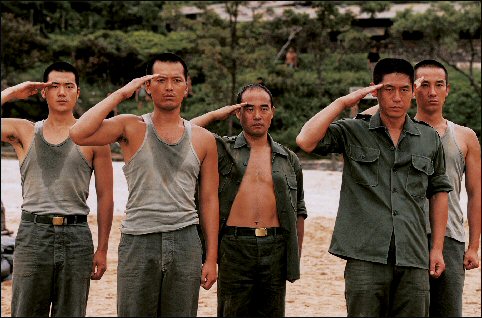
The film is built more around the surrounding drama, friendship, and struggles Unit 684 endure together, rather than going deep into the individual characters. This direction makes sense because understanding all 31 characters would not only take too long, but would also dilute the overall story. The corrupt politics between the various South Korean politicians, the rising tension between the two countries, and the officers’ decisions in training the assassin unit also add to the movie’s backdrop quite well. As everything in the movie builds up to the big finale, it is an incredible thriller and suspenseful ride, as the viewer will appreciate and understand Unit 684’s story even more.
One would imagine that a movie based on a true story would bring some controversy over true facts vs. fiction simply added for movie entertainment. Yet, according to various Korean reviewers and notes, the film portrays a fairly accurate assessment of what occurred during the Silmido incident without going overboard. But as with most movies dealing with war or real events, Silmido shouldn’t be watched as the next great historical discovery, but rather, as an untold story about a ragged group of 31 men and their impact on Korean history.
#9) Memories of Murder
Director: Bong Joon-Ho
Writer: Bong Joon-Ho, Kim Kwang-Rim,
Shim Sung Bo
Genre: Thriller, Crime, True Story documentation
Release Date: May 2003
A young woman met an unfortunate fate; she is found bloodied, strangled, raped, and thrown into a countryside ditch. Days later, around the same rural area, another woman’s corpse is discovered with similar brutal torture as the first. But who would do these murders? How did the killer pull off the murders? And most importantly, why would the murderer do such a thing? These are the questions that confronted the Gyonggi police force in 1986, as South Korea was confronted with its first serial killer that lasted until 1991.
 Memories of Murder skirts a fine line in retelling a sensitive subject, as the killings bring up painful memories and utter disbelief to the Korean public nearly twenty years ago. The balance between entertainment and sympathy has to be taken into consideration. Fortunately, the movie does a fine job in taking another angle on the brutal tale. While many crime thrillers would go into the killer or the murders, the movie shows how the good guys — the “justice” — are just as corrupt, unruly, and desperate to catch the killer to restore peace. In one scene, blind accusations are taken to the extreme as one suspect gets “interrogated” with fists and kicks. And for this, director Bong Joon-ho deserves praise for presenting the truth instead of taking old wounds and covering them up with new bandages.
Memories of Murder skirts a fine line in retelling a sensitive subject, as the killings bring up painful memories and utter disbelief to the Korean public nearly twenty years ago. The balance between entertainment and sympathy has to be taken into consideration. Fortunately, the movie does a fine job in taking another angle on the brutal tale. While many crime thrillers would go into the killer or the murders, the movie shows how the good guys — the “justice” — are just as corrupt, unruly, and desperate to catch the killer to restore peace. In one scene, blind accusations are taken to the extreme as one suspect gets “interrogated” with fists and kicks. And for this, director Bong Joon-ho deserves praise for presenting the truth instead of taking old wounds and covering them up with new bandages.
Even if one is already familiar with the murder tale, the incentive to see this film lays in its consistent story flow and the male acting leads. Song Kang-ho takes the first lead as the blue-collar Park Du-man, an arrest-first-and-ask-later detective that doesn’t believe in evidence or logical arguments. Kim Sang-kyung, on the other hand, plays the more calm and sane polar opposite, detective . Together, they display a great acting job, showing the constant tension from their philosophical differences, the emotional toll suffered after each passing day, and the frustration of not having the necessary resources from their own police department.
Memories of Murder is one of the many movies that is largely unknown to non-Korean viewers, yet is definitely recommended to those that loves mystery, crime thrillers, or wants a modern perspective on the infamous murder case.
#8) 3-Iron
Director: Kim Ki-Duk
Writer: Kim Ki-Duk
Genre: Thriller, Drama, Romance, Crime
Release Date: October 2004
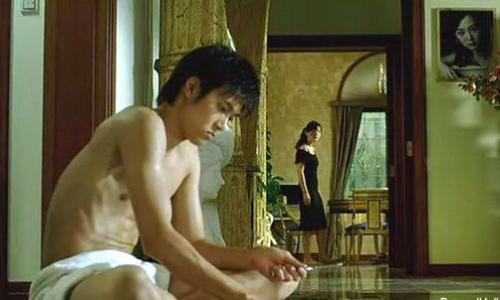 When 95% of the main character is through his actions and not words, one can’t help but remember the old saying, “Action speak louder than words… much louder.” So what can one say about 3-Iron? If one were to look at the script of the main character during development, it would look similar to this “…” Exactly. Silence is an art. It leaves room for interpretation. It is rare for a lead character in a movie to speak so little, yet mean so much.
When 95% of the main character is through his actions and not words, one can’t help but remember the old saying, “Action speak louder than words… much louder.” So what can one say about 3-Iron? If one were to look at the script of the main character during development, it would look similar to this “…” Exactly. Silence is an art. It leaves room for interpretation. It is rare for a lead character in a movie to speak so little, yet mean so much.
Director Kim Ki-duk is known to express his movies by using outside themes, such as the environment, sexuality, subtle silence, or violence to communicate to the viewer, rather than direct dialogue between actors. 3-Iron follows Young Tae-suk, a young, free-spirited, homeless man that breaks into peoples’ houses when they are away on vacation. His intent, however, isn’t to steal valuables. Rather, he uses the owner’s vacant house as a hotel for a day and becomes a “butler”: repairing broken appliances, doing the laundry, and cleaning. Tae-suk’s nomadic lifestyle, however, takes a sharp turn when he comforts an abused wife he meets after a break-in. As they start to become closer, Tae-suk knows that his wandering ways of living will change as well.
Through the silence and his many body gestures, the viewer learns of Tae-suk’s desire to live as a free spirit in secrecy, living as a ghostly presence in many homes without being noticed. Even when thrusted into confrontation and danger, he is a man of very few words, unflinching, unafraid, and not hostile of the consequences. Lee Hyun-kyoon plays the silent protagonist to a tee, as his body movements and facial expressions say more than his words. Lee Seung-yeon blends her acting skills as the distressed wife as she finds true happiness only when she meets her quiet co-star. The amazing part is that neither of the main stars, even as they fall for one another, rarely say a word to the other when expressing their feelings. Yet, during the movie, their adulterous romance is very believable.
3-Iron is a work of movie art, relying heavily on its great acting a lot more than any other movie feature. While the movie starts off slow, the viewer will find appreciation in seeing how Tae-suk grows and evolves throughout the film. Foreign movie critics certainly found appreciation of 3-Iron, as to date, has won six awards and was nominated six times for various categories. This film is a truly unique movie experience and one that should not be missed.
#7) Joint Security Area (JSA)
Director: Park Chan-wook
Writer: Jeong Seong-San, Kim Hyeon-Seok,
Lee Mu-Yeong, Park Chan-Wook,
Based on Park Sang-Yeon (author of DMZ)
Genre: Mystery, Thriller, Drama, War
Release Date: September 2000
In 1989 the Berlin wall fell and reunited Germany. But another wall along the 38th parallel goes without mention and it lies between two sides braced for an inevitable war. It is known as the Demilitarized Zone (DMZ). When alarms started to blare throughout the DMZ, both the North and South Koreans started to fire upon one another. A deeply injured soldier made a limping run during the fire fight from the North to the Southern border. Two North Korean soldiers were found shot and dead along the border, as the two Koreas were tethering on the brink of all-out war. The Neutral Nations Supervisory Commission (NNSC) – a non-biased mediator consisting of Swiss and Swedish investigators — were immediately rushed to the DMZ to diffuse the escalating hostilities and uncover the truth. But who were involved in the incident? What happened exactly? Is there more to the story than the testimonies given?
Enter Major Sophie, an investigator of Korean descent, but Swiss citizenship. As Sophie’s first time in Korea, she begins in asking those involved what happened. However, as interrogation after interrogation revealed no results, it became apparent that the soldiers were keeping a crucial secret to finding the truth. When the testimonies from each Korea arrived, their stories posed two vastly differing scenarios that were inconsistent with the other. Even with Sophie’s unique questioning – such as the number of bullets fired and where the gunshots landed – and persistence to the case, without the soldiers’ cooperation, she was getting nowhere. As the investigation grinded to a hopeless rut, both Koreas threatened to extradite the NNSC back to Switzerland within three days. It was apparent that neither side wanted a fair resolution, but to instead believe their own account. However, Sophie had other plans.
While action-thriller Shiri explored both sides of the North-South Korean animosities in 1999, Joint Security Area (JSA) delves even further. Rather than taking the easy route and stereotyping one side as “good” and the other as “evil” or implying hidden biases, JSA director Park Chan-woon shows that both North and South Korean soldiers are, at the core, humans that can have empathy for one another regardless of nationality. The soldiers on both sides have deep, well thought-out, and compelling stories. This is commendable as this movie touches upon the most sensitive topic of Korean Unification and yet presents the subject tastefully.
The movie’s excellent pacing also deserves mention. Through the brilliant execution of bouncing between extended flashbacks and engaging interrogation scenes, the movie really shines at its brightest. The viewer then must go alongside Major Sophie as they piece together the scenes of truth and weed out the scenes of fiction. Only then can a full picture be revealed.
The acting is also top-notch as Lee Young-ae’s portrayal as the charismatic Major Sophie, Lee Byung-hun’s display as guilt-torn Sgt. Lee Soo-hyeok, and Song Kang-ho’s acting of the honorable Sgt. Oh Kyeong-pil were spot on. Many side characters in the film were also acted admirably as well. From being vindictive and disappointed during the interrogations, to showing anger, shock, and desperation during the flashbacks, the movie shows a wide variety of emotions. If there is one thing to knock about JSA’s acting, however, it is Lee Young-ae’s English dialogue. While she is not expected to be fluent in speaking English – as she is fluent in both her native Korean and German – both her pronunciation and script writing sounded clumsy and choppy.
Joint Security Area was one of the biggest blockbusters of 2000. Expenses were not spared in its cinematography due to the new Super-35 mm format, making the camera shots clean and sleek. Its environment was also surreal, as the film studio spent nearly $1 million US dollars into recreating the Pannumejoum truce village seen in the movie. While the film’s acting, presentation, pacing, and realism are all excellent, its deep underlying message is what truly sets this movie to a new level.
#6)Oldboy
Director: Park Chan-wook
Writer: Hwang Jo-Hun, Lim Chung-Hyeong,
Lim Joon-Hyung, Park Chan-Wook
Based on Garon Tsuchiya (story),
Nobuyuki Minegishi (comic)
Genre: Drama, Mystery, Thriller
Release Date: November 2003
A man wakes up in a shabby hotel room and has no clue how he got there. Recovering from a hangover the night before, he finds that the room has the basic human necessities: a desk, a bed, a bathroom, and even a small TV for news. Yet, when he goes to the steel front door, he notices there is a small slot on the bottom and is locked from the outside. He is essentially imprisoned in this room. He soon hears a quaint tune and seconds later, sleeping gas seeps into the room from the small door crevice knocking him out cold. When he finally wakes up, he notices his new clean clothes, a clean haircut, and a fresh new meal of pot stickers slid under from the door’s slot. How long will he be here? Who placed him here? Most importantly, why is this man even in this room in the first place? This is the new life of Oh Dae-su.
Famed Korean director Park Chan-wook creates a sinister, dark, mysterious, and engaging movie with his 2003 thriller Oldboy. Based off the Japanese manga of the same name, the film, for the most part, stays true to the original. From the get-go, this film sucks the viewer in, as they ask the same question as Dae-su, “How did I get in this nightmare?” A few days after he is thrown into his private prison-for-one, he watches a TV news report of death of his wife. To add further result to misery, he is also named the prime suspect of his spouse’s murder. With his wife dead and no way to get out, he goes into a deep depression, void of any real emotion.
Every day he lives in isolation from anyone doing the same routine: eating, exercising, showering, punching walls, watching TV, and sleeping. Whenever he watches TV, it represents his only window to the outside world. The years in his secluded prison pass by, as he witnesses major world events such as the Asian Financial Crisis in 1997, the return of Hong Kong back to China, and the death of the late Princess Diana. One day, however, he is unexpectedly released from his prison he had called home for the last 15 years. This is just the beginning of his journey; now he can find answers to his questions above.
But imagine, just for a couple minutes, what would you be thinking if you had no human contact for the last 15 years, let alone one week? What would you do? Who would you call or go to first? How do you start the most basic conversations with people on the street? If you’re Oh Dae-su, you would feel the need for justice and take revenge on the people responsible for your 15-year imprisonment. If there is one positive from being secluded, it is the various skills he inherently developed. He honed his awareness by watching TV news, fighting prowess by practicing shadow boxing, and taught himself a keen sense of logic and problem solving by his motivation to finding the culprits. Irony sets in, as the skills he learns during his stay in prison would greatly assist him in catching the villains who threw him there in the beginning.
Oldboy is not for the weak or faint-of-heart. The film seriously questions one’s own morals, values, and life itself without “sugarcoating” its intentions. It is intended to make the viewer uncomfortable. Yet, the viewer will be rewarded. Between the movie’s dark tones, vengeful feelings, and sadistic atmosphere, the viewer is pulled into Oh Dae-su’s world. The ending is also crafted quite well, as it contains a both shocking twists and more questions to ponder. Where many other films have difficulty in presenting mature themes, Oldboy succeeds in exploring deeply mature and painful subjects. Choi Min-sik is the actor that makes this dark and mature film work, as his portrayal of Oh Dae-su is amazing.
This is Park Chan-wook’s 2nd movie on this list and it’s no fluke; his movies are just that good. While some of the movies on this list are unheard to non-Korean movie fans, Oldboy is known in many world movie circles. The film has garnered many awards in various film festivals (17 awards total), great praise from movie critics, and a must-see reputation from netizens. Even famous movie directors, such as Quentin Tarantino, who is known to have made films similar in nature to Oldboy, enjoyed the film so much that he wanted it to receive the 2004 Cannes’s Palme D’Or award. Instead, that award went to Michael Moore’s much safer and anti-Bush documentary Fahrenheit 911.
As with the recent Hollywood trend of importing successful Korean movies, a US remake of the film – starring talented US actor Will Smith and directed by none other than Steven Spielberg – is in the works. Hopefully, we can look forward to Smith duplicating Choi Min-sik’s incredible acting and Spielberg paying homage to Park Chan-wook’s masterpiece.
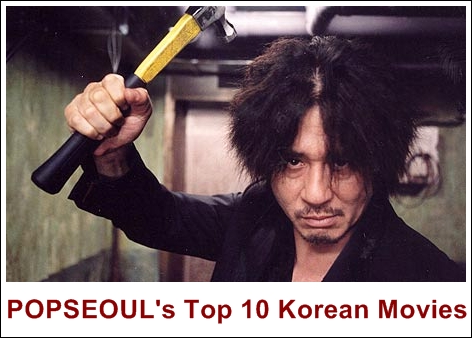



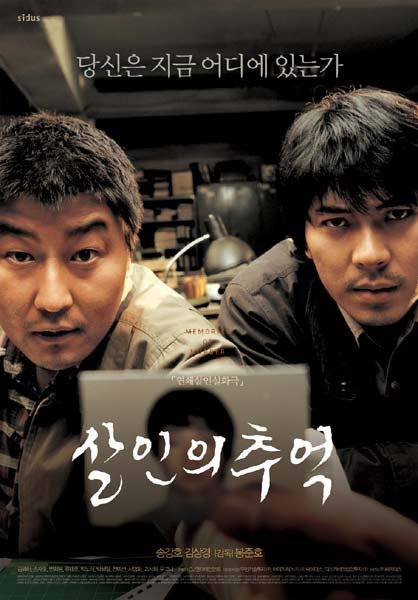


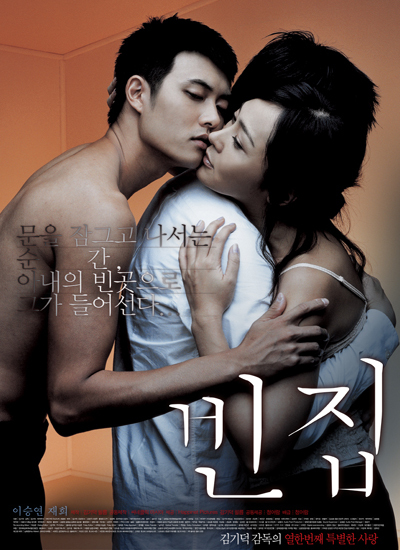

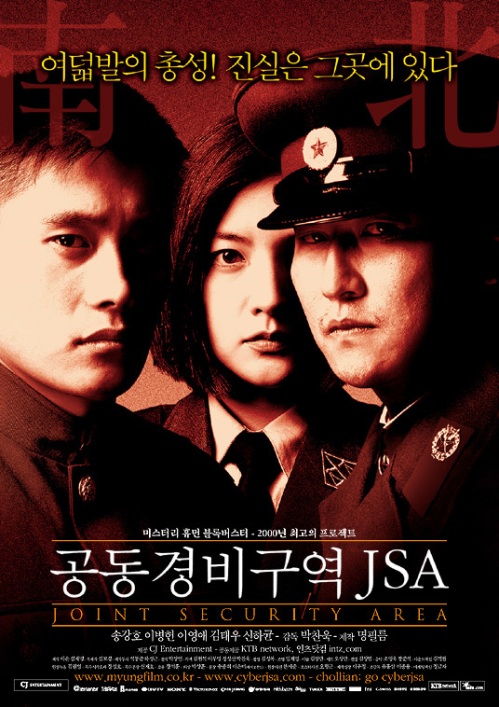
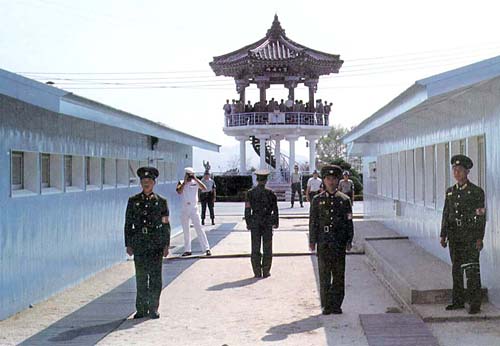


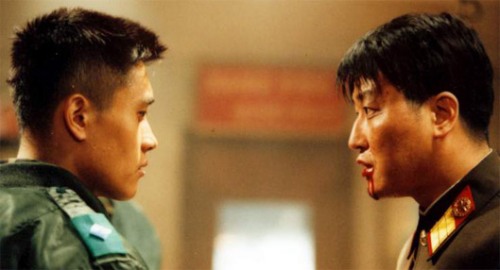
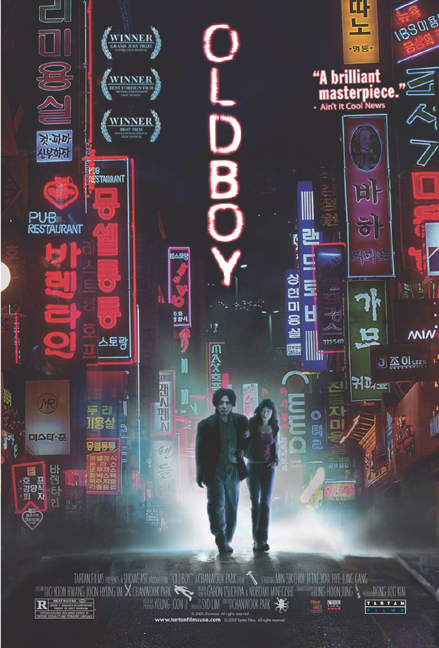

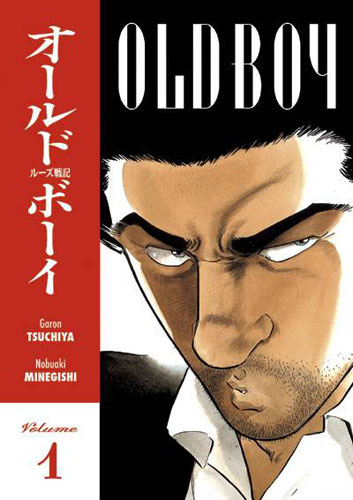
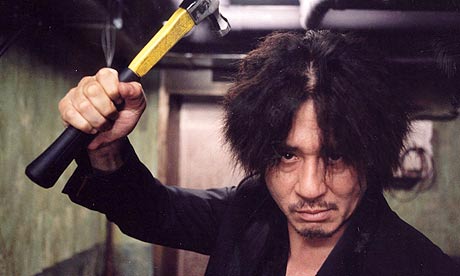
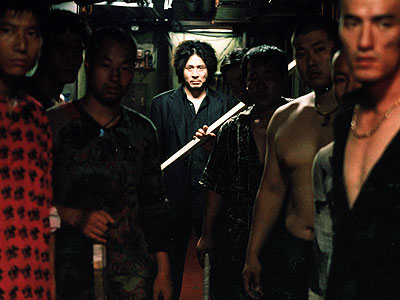
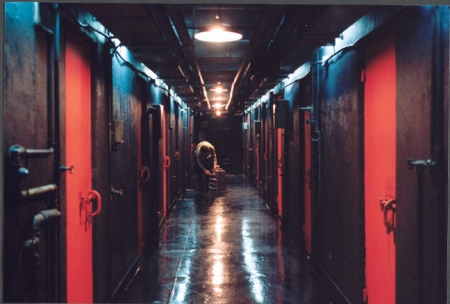
No comments:
Post a Comment